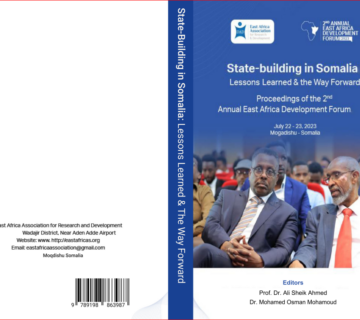Hassan Haji Mahmoud Abdullahi
Abstract
The Somali state encountered tremendous challenges that overwhelmed its capacity as a state under formation. The multifaceted challenges, including political and socio-economic issues, have hindered the state-building endeavors and formed a strong barrier to the progress and development of the state’s growth. The division of the Somali political elite horizontally (tribally) and their inability to manage political competition and demonstrate behaviours that correspond to the values of the modern state have led to the loss of priorities in national issues and the spread of corruption in all state apparatus, which paralyzed the entire state’s movement. Political tribalism is manifested in its clearest form in the dilemma of reconciling political party necessities and tribal representation, a culture which prevails until today. The hollow discourse that failed to find a way of reconciling national slogans with the requirements of tribalism represented a big dilemma. The contradiction emerged during and after elections; politicians utilized national discourse during election campaigns, while tribalism came to the surface after the elections ended, particularly in times of power and resource sharing. Also, regional conflicts represented a challenge to the nascent institutions as the country engaged in armed conflict which was beyond its military and economic capacity. One factor that prompted the regional conflict was the Cold War and the superpowers’ scramble for influence in the region.
Keywords: state building,encountered apparatus, Cold War, developing countries, discourse, political, tribalism, socio-economic.


No comment